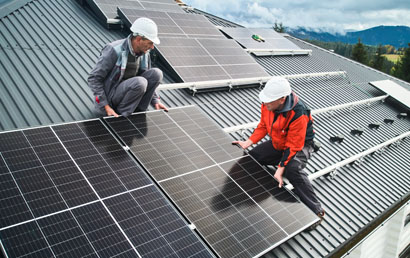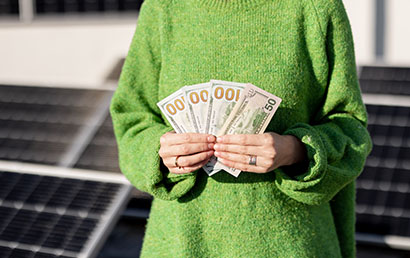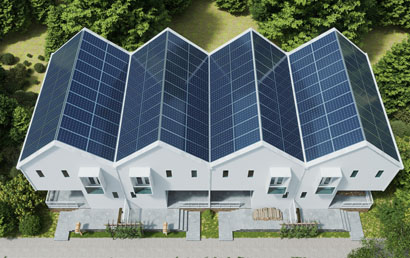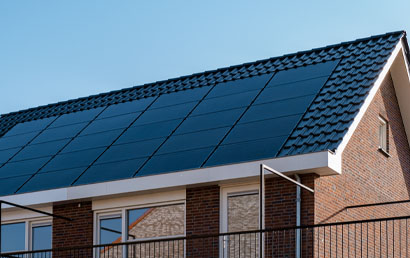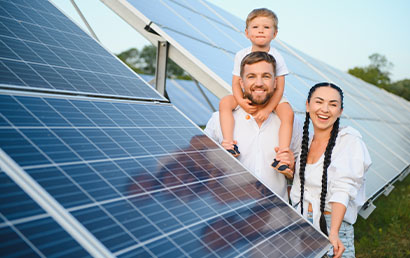Introduction
As the world shifts towards sustainable energy solutions, the choice to harness solar power is increasingly becoming a reality for homeowners and businesses alike. However, when embarking on the solar journey, one crucial decision looms large: Should you lease or purchase a solar system? In this article, we'll explore the pros and cons of both options to help you make an informed decision that aligns with your goals, budget, and long-term vision for clean energy.
Leasing Solar Systems
No Upfront Costs:
One of the most appealing aspects of leasing a solar system is the absence of a hefty upfront investment. For those who may be deterred by the initial costs associated with purchasing solar panels, leasing provides an accessible entry point into solar energy.
Low Maintenance Responsibilities:
When you lease a solar system, maintenance and repairs are typically the responsibility of the leasing company. This means that you won't be burdened with unexpected repair costs, providing a sense of financial predictability over the lease term.
Immediate Energy Savings:
By opting for a solar lease, you can start enjoying the benefits of solar energy immediately. The electricity generated by the solar panels is typically sold to you at a fixed, often lower rate than your current utility costs, resulting in immediate savings on your electricity bills.
No Ownership Responsibilities:
Leasing means you don't own the solar panels, which also translates to not being responsible for their disposal or recycling when they reach the end of their lifespan. This alleviates you from the responsibilities of managing the system's lifecycle.
Drawbacks of Leasing
Long-Term Costs:
While leasing requires no upfront costs, the long-term financial implications may be less favorable. Over the life of the lease, you may end up paying more for the solar energy than if you had purchased the system outright.
Limited Financial Incentives:
When you lease a solar system, you may not be eligible for certain financial incentives and tax credits that come with solar ownership. These incentives can significantly impact the overall return on investment for solar installations.
Transferability Issues:
If you decide to move before the lease term expires, transferring the solar lease to the new homeowner can be challenging. Some potential buyers may be deterred by assuming the lease, making the process more cumbersome.
Purchasing Solar Systems
Ownership and Increased Property Value:
Purchasing a solar system means you own the equipment outright. This ownership not only gives you the freedom to make decisions about your system but can also contribute to an increase in the value of your property.
Financial Incentives and Tax Credits:
Solar ownership makes you eligible for various financial incentives and tax credits, including the federal Investment Tax Credit (ITC). These incentives can significantly reduce the overall cost of purchasing a solar system.
Long-Term Savings:
While the initial investment for purchasing a solar system may be higher, the long-term savings are often more substantial. With no ongoing monthly lease payments, your solar panels become a cost-effective source of electricity over their extended lifespan.
Flexibility and Control:
Solar ownership provides you with the flexibility to make decisions about your system, such as adding more panels or upgrading components. You have greater control over your energy production and can tailor the system to meet your evolving needs.
Drawbacks of Purchasing
Upfront Costs:
The primary drawback of purchasing a solar system is the upfront investment. While the costs have decreased in recent years, it remains a significant consideration for those who may prefer a more accessible entry point into solar energy.
Maintenance Responsibilities:
As the owner of the solar system, you are responsible for maintenance and repairs. While solar panels are generally low-maintenance, it's essential to factor in the potential costs of upkeep over the system's lifespan.
Making the Decision:
The decision to lease or purchase a solar system ultimately hinges on your financial situation, preferences, and long-term goals. If immediate savings and low upfront costs are priorities, leasing may be the right choice. However, if you're focused on long-term financial benefits, ownership, and the ability to take advantage of incentives, purchasing may be the more suitable option.
Before making a decision, carefully assess your budget, energy consumption, and future plans. Consider consulting with solar professionals who can provide personalized advice based on your specific circumstances. Whichever path you choose, embracing solar energy is a positive step towards a sustainable future, and your decision will play a pivotal role in shaping the energy landscape for years to come.


